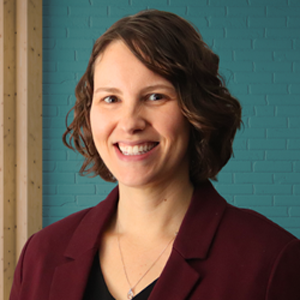The Diocese of Toronto recently welcomed a special guest, with the hope of soon establishing a companion relationship with Anglicans 7,300 km away. The Rt. Rev. Maurício Jose Araujo De Andrade, bishop of the Diocese of Brasilia, was the guest speaker at the diocese’s 162nd regular session of Synod in November, where he spoke of his dreams of a partnership with Toronto.
After a storm delayed their incoming flight by 24 hours, Bishop Andrade and his wife Sandra visited Toronto from Nov. 17-22. They spent two days at Synod and attended St. James Cathedral on Nov. 19, where Bishop Andrade preached at the 11 a.m. service.
Bishop Andrew Asbil hopes the visit will lead to a companionship program between the Diocese of Brasilia and the Diocese of Toronto. “The hope is that we start learning from each other and finding ways of visiting each other’s contexts and building on that partnership together,” he says. “I think it’s really an exciting time for us in the Diocese of Toronto. We are so multicultural and so diverse when it comes to language, culture and tradition, and this gives us another opportunity to spread our wings.”
The Diocese of Brasilia is one of nine dioceses and a missionary district in the Anglican Episcopal Church of Brazil. Located in central Brazil, its mission is “to be a missionary church, instruments in announcing and witnessing to the Kingdom of God through example and words; to live in diversity and inclusiveness in our way of being Anglican, becoming part of the social, cultural context of our communities.” Its vision is “to be bold and dynamic in witnessing to the gospel and in missionary action in the promotion of life, serving in love, faithfulness and solidarity.”
Bishop Andrade spoke to Synod at the banquet dinner on Friday evening, bringing greetings from the clergy and people of the Diocese of Brasilia. “They are at this moment praying for this Synod,” he said. He spoke about the similarities he had noticed between Toronto and Brasilia, two cosmopolitan centres “where people of diverse religion come together in community.”
He shared his hopes for partnership between the Diocese of Brasilia and the Diocese of Toronto. He said collaboration between the two dioceses would be “an opportunity to join forces to promote the mission of God in both cities” and “to announce the Church of God to the world of God” in joint projects where the love of Christ becomes visible.
Bishop Andrade also spoke of what he called a missing Beatitude: blessed are those who dream. “I invite you all to dream together,” he said. “We can seek to dream together for the new work that is possible.”
Although the Diocese of Brasilia has only four parishes, it can teach the Diocese of Toronto a lot about mission work, says Bishop Asbil. “There are many lessons we can learn from the Diocese of Brasilia about frontline ministry in small communities. They can help us think about what it means to be mission-oriented in a new time. Many of our congregations are small and how do we reinvigorate our mission in a new way, and what will it look like?”
In addition to his remarks after dinner, Bishop Andrade joined the Rev. Canon Maurice Francois in leading a workshop for Synod members about Lusophone (Portuguese-speaking) ministry. Canon Francois leads Lusophone communities at Parroquia San Esteban, located at Holy Trinity, Trinity Square, and at St. Mary Magdalene.
The diocese is celebrating the 25th anniversary of Lusophone ministry in Toronto, currently the only such Anglican ministry in Canada. The city of Toronto has the largest Portuguese-speaking population in the world among countries where Portuguese is not an official language.
Bishop Asbil says a companionship program would help the Diocese of Toronto serve newcomers from South America and Central America. “We have a growing Lusophone community here in the Diocese of Toronto, so Bishop Maurício’s presence is really going to help us formulate that.”
Bishop Andrade spoke again briefly at the conclusion of Synod. “It has been a great joy for me to share in learning about you,” he said. He also invited Bishop Asbil to visit the Diocese of Brasilia in the coming months as the two dioceses work toward a formal partnership.



Thy Kingdom Come